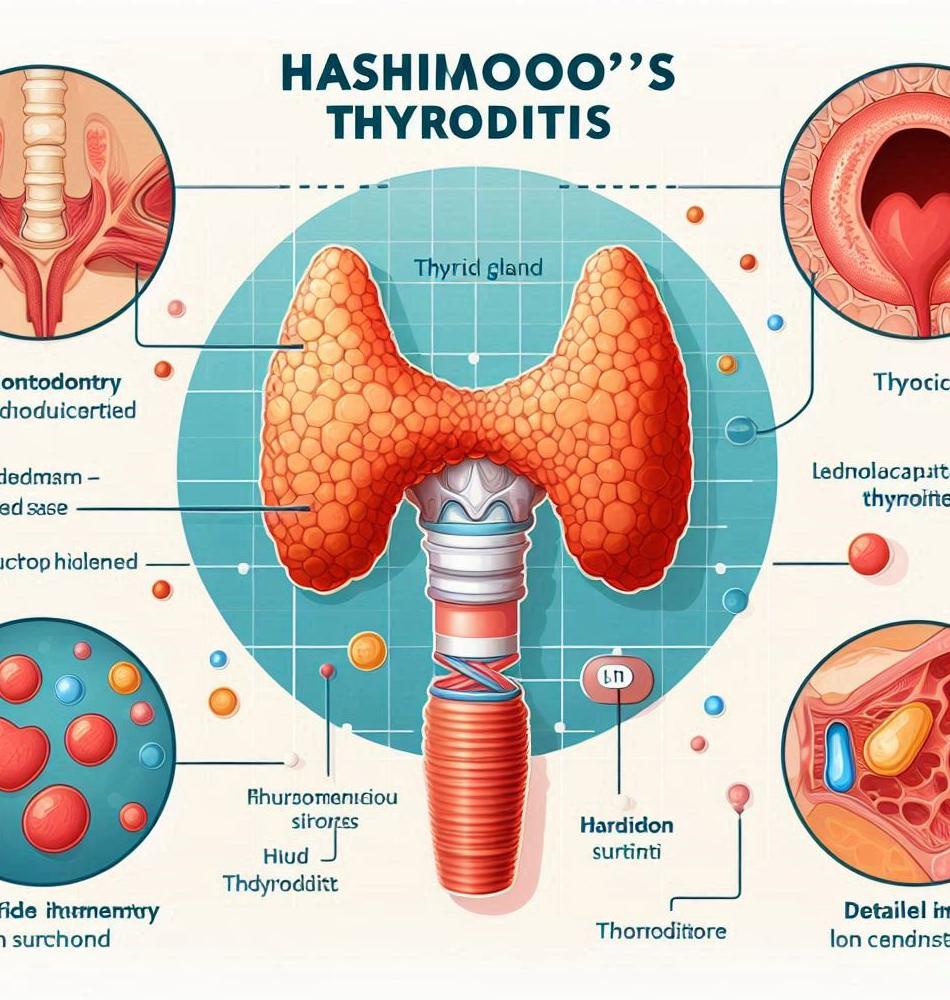Understanding Autoimmune Diseases That Cause Thyroiditis 🧬
Thyroiditis is a term that covers a range of inflammatory conditions affecting the thyroid gland, a butterfly-shaped organ in the neck that plays a crucial role in regulating various metabolic processes. Many people are familiar with common conditions like hypothyroidism or hyperthyroidism, but thyroiditis is often overlooked. One of the most significant aspects of thyroiditis is its connection to autoimmune diseases, which occur when the immune system mistakenly attacks healthy cells. In this article, we will explore the autoimmune diseases that cause thyroiditis, their symptoms, treatments, and much more.
The Link Between Autoimmune Diseases and Thyroiditis 🌐
Autoimmune diseases are characterized by the body’s immune system attacking its own tissues under the misconception that they are foreign invaders. This malfunction can result in various health issues, and when it comes to thyroiditis, two primary autoimmune diseases are usually involved: Hashimoto's thyroiditis and Graves' disease. Understanding how these diseases affect the thyroid can provide critical insight for individuals suffering from thyroid-related issues.
Hashimoto's Thyroiditis: The Silent Culprit 📉
Hashimoto's thyroiditis is the most common cause of hypothyroidism, resulting from chronic inflammation of the thyroid gland. This autoimmune disease primarily affects women, though men can also develop it.
Symptoms of Hashimoto's Thyroiditis ⚠️
A few symptoms associated with Hashimoto's thyroiditis can include:
- Fatigue
- Weight gain
- Cold intolerance
- Dry skin and hair
- Constipation
- Muscle weakness
- Depression
Treatment Options for Hashimoto's Thyroiditis 💊
Managing Hashimoto's thyroiditis often involves hormone replacement therapy, where synthetic hormones are administered to balance thyroid hormone levels. Regular monitoring is essential to ensure that the dosage is appropriate, as individual needs can vary.
Graves' Disease: The Thryoid Hyperfunction 🚀
Unlike Hashimoto's thyroiditis, Graves' disease causes the thyroid gland to become overactive, a condition known as hyperthyroidism. This autoimmune disorder can lead to a host of issues, ranging from anxiety to weight loss.
Symptoms of Graves' Disease 🔥
Recognizing the symptoms of Graves' disease is crucial for timely treatment. Some common symptoms include:
- Rapid heartbeat
- Anxiety and irritability
- Increased sweating
- Heat intolerance
- Unexplained weight loss
- Protruding eyes (Exophthalmos)
Treatment Options for Graves' Disease 🩺
Treatment for Graves' disease may involve antithyroid medications, radioactive iodine therapy, or in some cases, surgical removal of part of the thyroid gland. Your healthcare provider will help determine the best approach dependent on the severity of the condition and your lifestyle.
Other Autoimmune Diseases Associated with Thyroiditis ⚙️
While Hashimoto's and Graves' are the most recognized autoimmune diseases linked to thyroiditis, other conditions can also influence thyroid function.
1. Postpartum Thyroiditis 💕
This is a temporary form of thyroiditis that can occur after childbirth. It often begins with hyperthyroid symptoms and may be followed by hypothyroid symptoms.
2. Silent Thyroiditis 🔇
Similar to postpartum thyroiditis, silent thyroiditis can cause short-lived hyperthyroid symptoms, often with no significant pain or discomfort.
3. Thyroiditis Associated with Other Autoimmune Conditions 📈
Individuals with conditions like lupus, rheumatoid arthritis, and Sjögren's syndrome may have an increased risk of developing thyroiditis.
Diagnosing Autoimmune Thyroiditis 🧪
To diagnose autoimmune thyroiditis, healthcare professionals usually rely on:
- Thyroid function tests to check hormone levels.
- Antibody tests to detect the presence of thyroid-specific antibodies.
- Imaging studies, such as ultrasound, to assess the structure of the gland.
Frequently Asked Questions about Autoimmune Thyroiditis ❓
Let’s tackle some questions that people often have regarding autoimmune diseases and thyroiditis:
- What causes autoimmune diseases like Hashimoto's or Graves' disease?
- Can thyroiditis be cured?
- Are autoimmune thyroid conditions hereditary?
- How often should I get my thyroid checked if I have an autoimmune disease?
- Are there lifestyle changes that can help manage my condition?
Lifestyle and Management of Thyroiditis 🌱
Beyond medical treatment, there are lifestyle changes that can contribute positively to the management of autoimmune thyroiditis. Some recommendations include:
- Eating a balanced diet that includes plenty of fruits, vegetables, lean proteins, and healthy fats.
- Maintaining a consistent exercise routine to support overall wellness.
- Managing stress through mindfulness practices, yoga, or meditation.
- Regularly monitoring symptoms and communicating with healthcare providers.
Conclusion 🌟
Thyroiditis is not merely an isolated condition; it often intertwines with autoimmune diseases that can have lasting effects on an individual’s health and well-being. Understanding the link between autoimmune diseases like Hashimoto's thyroiditis and Graves' disease provides critical insights for treatment and management. If you are experiencing symptoms associated with thyroiditis, consulting a healthcare provider can guide you toward an effective management plan. With the right approach, individuals with autoimmune thyroid conditions can lead fulfilling and vibrant lives.
.png)






